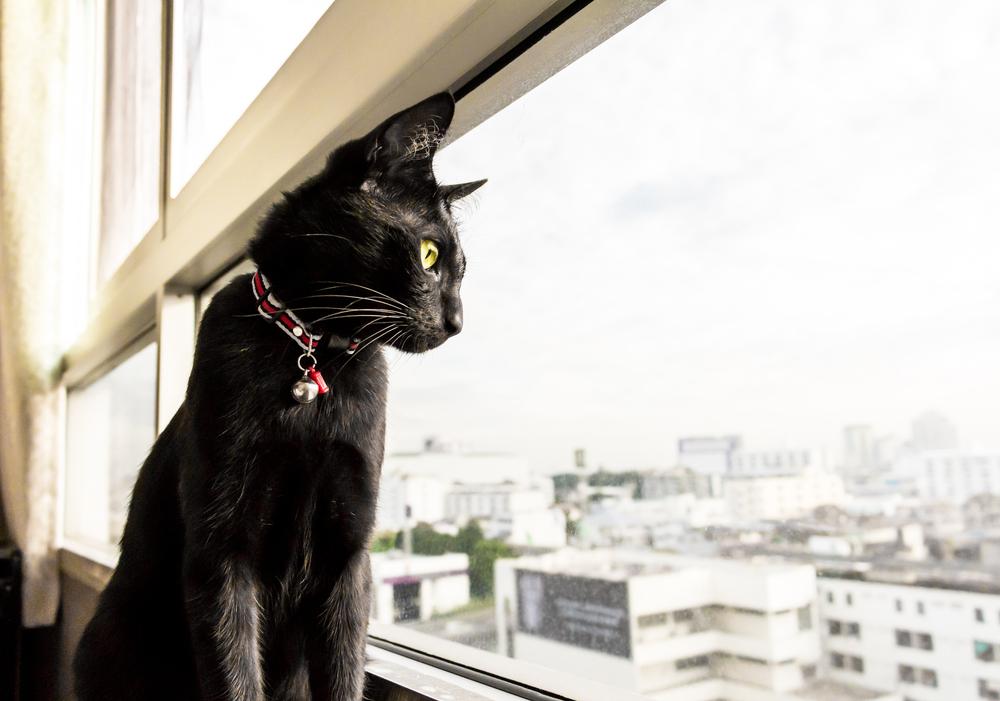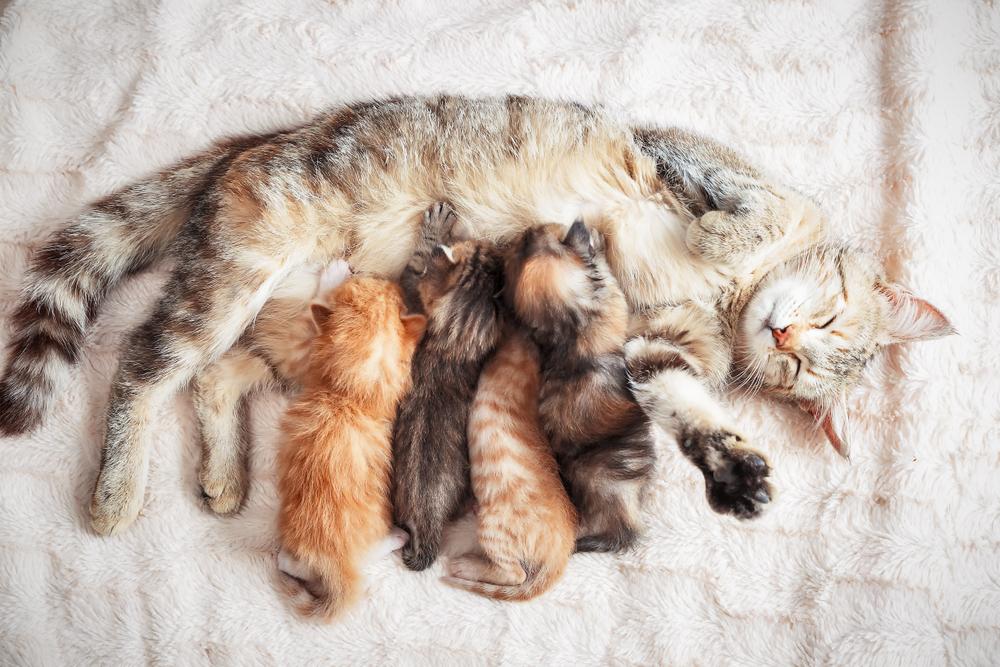

Having a pregnant cat means looking forward to furry bundles of joy and providing your cat with additional support throughout pregnancy and after birth. Pregnant and nursing cats have special nutritional needs, so it's important to understand (and implement) these requirements as you await the kittens' arrival.
Knowing what to feed a pregnant cat is critical to both your feline friend's health and to the health of her kittens and their future offspring. Read on to learn more about the nutritional requirements for pregnant and nursing cats, plus some pointers for keeping mom and babies healthy during these special life stages.
Nutritional Needs for Pregnant and Nursing Cats
Malnutrition — which can result from too little or too much of a nutrient or nutrients — may result in low birth weight among kittens. According to Small Animal Clinical Nutrition (SACN), this leaves the litter at risk for health issues and reduces the survival rate. So, how can you make sure your cat is getting what she needs? The first step is establishing regular exams with your veterinarian to check in on your cat's health during pregnancy and after birth. They'll help you choose the right food for your cat's needs, but here are the general nutritional considerations:

Calories
Pregnant cats need more calories to support their growing bodies and their kittens as they develop in utero. Cats also require increased calories for milk production, or lactation. In fact, SACN explains that nursing is the most energy-demanding stage of a cat's life.
These calorie needs can vary between cats and can change throughout pregnancy and lactation. Consult your vet for advice about how much to feed your cat at each stage.
Macronutrients
Increased fats and protein help meet this energy demand and allow pregnant cats to store body fat to help offset any weight loss that may occur during lactation. Meanwhile, protein supports the kittens' healthy growth and development. While specific requirements for carbohydrates aren't clearly defined, they also play a key role in supplying energy and preventing weight loss in pregnant and nursing cats.
Micronutrients
Minerals such as calcium, phosphorus and the amino acid taurine are particularly important during this stage of a cat's life to support healthy embryonic development. Most commercial kitten foods have adequate levels of these nutrients, so supplementing isn't necessary if your cat's food meets the nutritional requirements for this life stage per the Association of American Feed Control Officials.
Water
Knowing what to feed a pregnant cat doesn't stop at solid food. Proper hydration is also essential for healthy pregnancy and lactation. SACN explains that water is important for milk production, and the expansion of maternal and fetal tissues during pregnancy also increases your cat's need for water.
There aren't established guidelines for how much water your cat should drink, but make sure to keep cool, fresh water readily available and easily accessible during and after birth. In some cases, your vet may recommend offering your cat wet food to support water intake.
What to Feed a Pregnant Cat
If you're unsure about what to feed your pregnant feline friend (and later, her kittens), you're not alone. Your vet can help direct you toward the proper food for the increased demand of this life stage. For example, they may suggest feeding one of several Hill's Science Diet Kitten Food formulas, which you should start feeding as soon as you find out your cat is pregnant until she's weaned her kittens completely.
It's always best to ask your vet for specific feeding instructions, but following the instructions on the bag is a good place to start. While your cat is nursing, keep food readily available at all times. This will ultimately help wean the kittens and provide the mother with complete and balanced nutrition.
Pregnant and Nursing-Specific Foods
Here are some specific Science Diet foods available for pregnant and nursing cats:
Beyond Nutrition: How to Care for a Pregnant or Nursing Cat
Now that you know what to feed a pregnant cat and how to continue to support her nutritional needs during lactation, here are some additional tips to care for your kitty:
Provide a Cozy Bed
Create a soft, peaceful bedding area for your expectant cat, as she'll want a comfortable, quiet place to nest and give birth. Place her bed in a low-traffic area in a room she enjoys spending time in.
Attend Regular Vet Checks
A typical cat pregnancy (also known as the gestation period) lasts approximately 63 to 65 days, or about two months. So, schedule a vet visit promptly if you think your cat might be pregnant. Your vet may recommend weekly visits to track growth.
Expect Behavior Changes
Your cat may seek more attention or affection from you while pregnant, so don't be alarmed by extra purrs and demands for pets. On the other hand, she may act more aloof. Be patient with your cat either way and do your best to accommodate her changing behaviors.
Monitor Labor
Most of the time, cats labor smoothly and effectively without outside help. Some may even feel stressed if their pet parents try to handle or interact with them during this time. It's best to quietly monitor them with minimal interference.
If you notice heavy, black or bloody discharge before the kittens are born, straining for long periods without producing kittens, distress or marked lethargy, contact your vet immediately.

Kitten Care 101
Sharing in the excitement of your cat's pregnancy and the birth of her kittens can be both challenging and joyous. Start with these basic kitten care tips to support healthy, happy kittens:
Keep a Log
Once the kittens are born, keep a daily record of each kitten's weight, stool quality, development and activity, especially for the first two weeks of life.
Schedule Their First Vet Visit
Schedule a checkup during this first week or two of life (or earlier if you have any concerns or if any kittens are failing to thrive at the same rate as their littermates). Make sure to bring mama cat, too!
Wean Gradually
Most kittens begin eating solid food between 3 and 4 weeks of age and will be weaned by 6 to 10 weeks of age. Remember to keep solid food available for the nursing mother at all times. Some kittens will develop a curiosity about food on their own, while you may have to encourage others. Wet food is generally an easier transition for kittens who are just beginning to eat solid foods.
Looking for more information to help support your new mama cat and her babies? Get practical advice about feeding kittens and learn about kitten development milestones. You should also consult your vet for more guidance about raising kittens to help ensure your newest arrivals are getting what they need to thrive from day one.






















